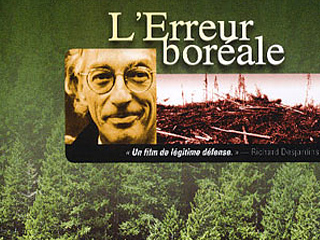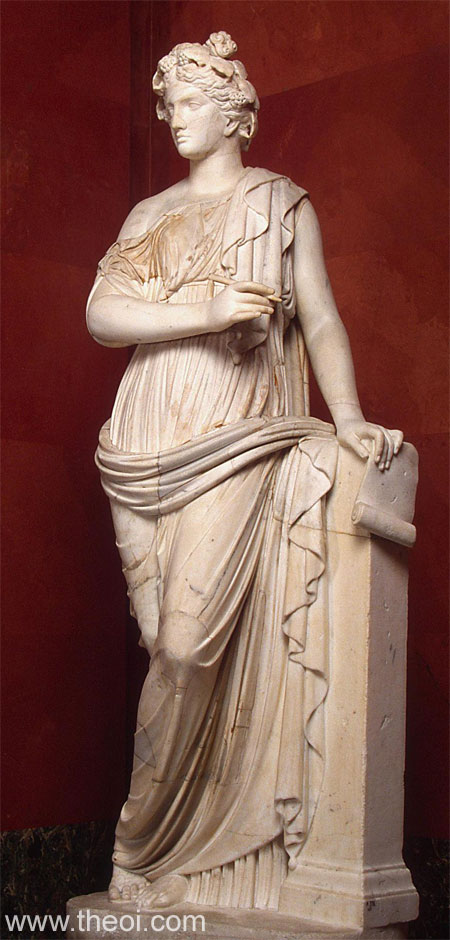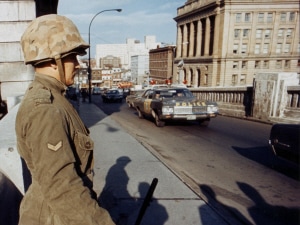by Sereena and Aïcha
Throughout life, anything can happen. These events can help shape who someone is as a person. These also help build the story of your life. Many families share a story that helps them know who they are and where they came from. A documentary is one way that we can find out about the stories of other people. Through the documentary Stories We Tell, we get more insight into the story of Sarah Polley's family, and more specifically, the story of her mother, Diane. We find out most of her story from the point of view of Diane’s family, lovers and friends. The documentary Silverlake Life is the personal story of two partners, Tim Joslin and Mark Massi, and how they dealt with AIDS. Through this film, we get the point of view of the two men. We get to know more about their story and what they went through. Everyone has their own story to tell.
Stories We Tell
Stories We Tell is a 109 minute documentary made by Sarah Polley in Canada in 2012. It is about Sarah trying to find out more about her mother Diane and Sarah coming to terms with the truth, and dealing with it. Diane Polley died from cancer when Sarah was 11 years old. Diane was described by everyone as very happy, outgoing and joyful. She was always full of energy. Sarah interviews family, friends, and previous lovers of Diane for the full story. Each person has a different story to tell about Diane, as they all knew her differently. Everyone had a different relationship with her; some were her children, some her lovers, and some her friends and family.
Diane had to deal with divorce of her previous husband, and with that, she also dealt with the custody of her children. She was featured in an article and called unrepentant because she didn't get custody of her children because she committed adultery. Diane also had some secrets. While Sarah tries to piece together her mother’s story, she found out something that she didn't know before. Everyone grew up believing Michael Polley was Sarah’s biological father. Sarah later found out that Diane had an affair in Montreal, while she was working, with Harry Gulkin, who is revealed to be her real father.
http://www.ctvnews.ca/entertainment/sarah-polley-s-stories-we-tell-examines-filmmaker-s-family-history-1.1281216
Sarah Polley uses different forms of narration to tell the stories. Sarah uses interviews and interrogations to get the story of her mother. Also, throughout the film, her father, Michael, does a voice over to tell his story. There was a lot of archival footage used. However, Sarah deceives us because there were also actors hired to play the part of many people and this was only revealed at the end of the movie.
This film is special because it shows us that every person knows us in a different way. We all have witnesses to our life; every person has a different story to tell about us. Each person that witnesses a part of our life has a different point of view. There are many different sides to every story. In Stories We Tell, through each person’s different point of view, we are able to construct the story of Diane and find the truth. Her story was shaped by what people said about her, and how they felt about her. However, sometimes putting the story of our life together can be difficult; there are some obstacles. We don't remember our life fully, but rather different pieces of it. We can put it together with our different memories but it will be fragmented. We also sometimes avoid painful things that happen in life. Some people also don't know the full truth. For example, many people believed that Geoff might have been Sarah’s real father, and they said this in their personal interviews. However, Harry was the real father, and Sarah found this out during the process of creating the documentary. Sarah herself had said that the “truth about the past is often ephemeral and difficult to pin down”. Therefore, it can be hard to remember the past and we might make up a story about it. One of the main questions that can be raised while watching this film is the question of authorship. Since many people are telling their own story of Diane, this shows that there are many authors of her story after she died. These are the people who were involved in her life, and witnesses. The people who are listening to her story are from the outside looking in.
Silverlake Life
http://www.amdoc.org/projects/truelives/pg_silverlakelife.html
Silverlake Life is an American film about two men, Tom Joslin and Mark Massi, living together and battling AIDS. They filmed their journey and explained the struggle of living with AIDS and how they are dealing with it. They couldn't direct the film because they died before it was finished, so it was directed by Peter Friedman. Silverlake Life shows us all the difficulties and challenges which people affected by AIDS have to live with. It shows us how it feels like to live with it and how hard it is not being able to do the things they were once capable to do. It shows how frustrating it is to live with the conscience of having AIDS and how challenging it is to face the world when you know all kinds of people are judging.
The biggest difficulty for Tom and Mike was that they couldn't live without the reminder that they will die. No matter what they do, they will die. When they had to take their medications every day, it was becoming really depressing and tough for them. It wasn't a healthy way of living even though they had no choice. They couldn't go anywhere because they would get tired easily and had bad headaches. Physically, they couldn't do anything because they were quickly losing weight. They were afraid of scaring people with their bodies, for example a lady at the pool asked them to put their shirts on so they won’t freak other people. They had to face comments of people who didn't really understand their situation and judgments that kept reminding them that they have AIDS.
What made the film special was the fact that the two partners were telling us their story by filming themselves. It felt like they welcomed us into their personal life. You could see how their lives changed in such a short time. It was interesting because we were able to see how their physical appearance and their mentality changed. They included their family and friends in their film. We saw that some members of the family had their own point of view on them living together and having AIDS. They weren't comfortable with themselves when people were watching but still showed their body. When you're with someone you love, it facilitates your journey. We could see that they had each other to make it easier. At the end of the movie, we saw Tom's face when he just died and his body was wrapped. It showed what people with AIDS have to go through.
Society tells you who you are. People put all their focus on negative things about your life. They don't care about the consequences that you will have because they only care about themselves. That is why it is important to have witnesses. They know who you are. They know what is right and what is wrong.
Reflection
These movies are about family, and the relationships we make in life. They are about the stories we create through our life and how we are able to tell them. Both Stories We Tell and Silverlake Life had something to do with death and the story of our life before death. There are many diseases in the world, such as cancer and AIDS, which can take your life or your loved ones life away so quickly. They can both teach us to not take life for granted and appreciate every moment we have because these moments create the story of our life. We can learn that we all have our own story to tell. The way we act can help shape our own life. It gives a perspective to outsiders and witnesses and helps what they say about us. In Silverlake Life, Tom had said that "You live a happy life, you live a happy life. You live a life of nay saying then that the life you live." We all have the capability to change our life, and create our own story. Everything we do creates the story of our life. Mark had also said that the little details in our life can create our story. The people that witness our story can tell our story, but we are the creators of it. You can be the one to tell your own story, which is how Tom and Mike did in Silverlake Life. You can also get other people to tell the story of someone, which is how Sarah Polley got people to tell the story of Diane in Stories We Tell. Tom and Mike used a handheld camera to get their personal point of view and tell their story. Sarah used interviews, footage, and actors to get different points of view to tell the story of Diane. Sometimes though, there is a question of if the stories of the past are true. In my life, it can be difficult to remember every single detail about my childhood. Sometimes people tell me stories of when I was younger and I combine them with what I remember. But alltogether it might not be the full truth. However, they are still good stories and I can tell them to others as I get older.
In the film Stories We Tell, it makes us realize that sometimes keeping secrets can be the better for you. It creates something better than if the truth is revealed because it might hurt the people you care about most. It shows that multiple version of the story may be better than one because no one knows the truth you are hiding from them. However, sometimes when the truth is revealed it might not hurt those who you are close to. It also makes us realize that even though someone seems opens about his life, that doesn't mean he's not hiding something. For example, one part of the film where there were multiple truths was about who Sarahs real father. Many people had different ideas of who her father could be. When Sarah found out her real father was Harry, she had to tell Michael. In the end, after she told Michael, neither of them were hurt, but Michael said he felt closer to Sarah.
In the film Silverlake Life, it makes us understand that people don't understand the struggle that other people go though every day. People forget that others are dealing with bigger problems than they do. There will always be people who don't care.
The first film, we can see that even though they lived through some lies, at the end, they are still together and appreciating life. We don't really care about the lies, life just continues. Only the important things matter. Family will always stay family. Being curious is a good thing because it can help us find more stuff than what we wanted to find. In the second film, the message is that everyone needs someone to get through difficult moments. It is harder to live without family or friends that can help you. No matter the judgments of others, we have to live for us and not to please them.
Self Portraits
We can learn and understand a lot by entering into the personal life of others and themselves too. Self-portraits makes you realize how people perceive you in different ways. It is easier to connect with the person. You learn more about yourself every day. We are able to see our feelings and our personality through self-portrait. We all have witnesses to our life to tell our story, but we have the power to tell our own story and be the author of it.







